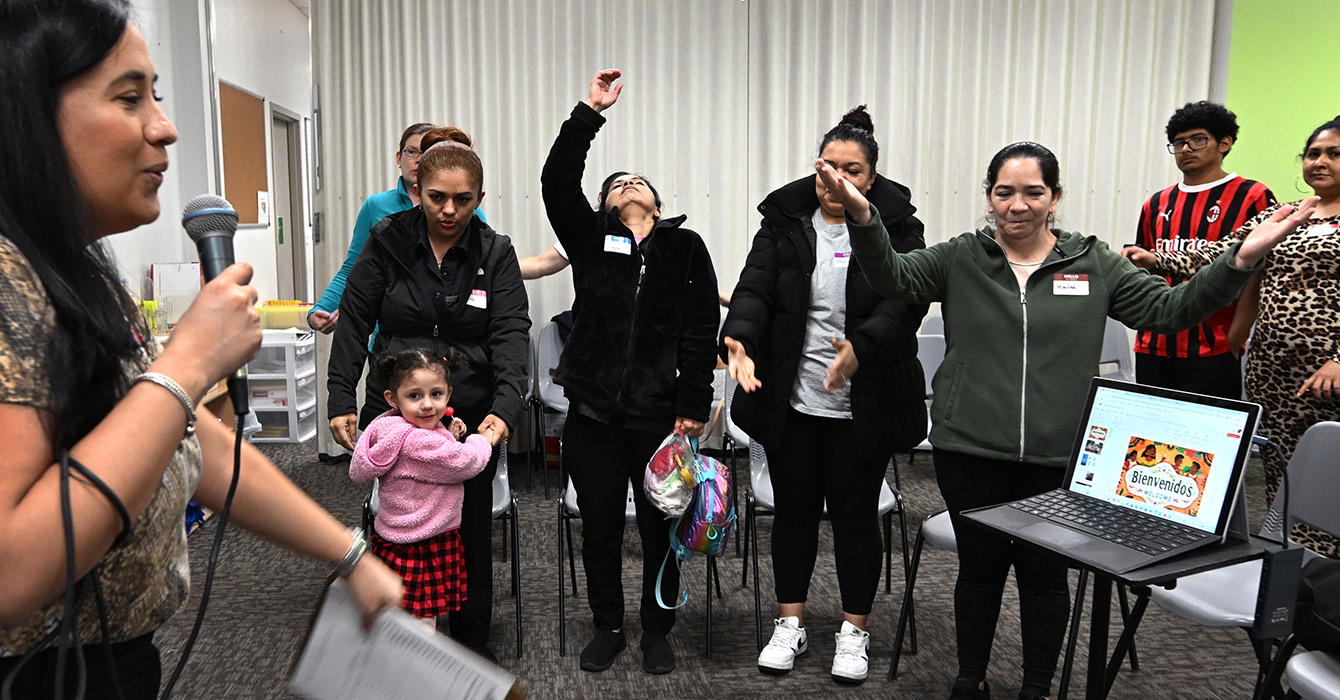It was another leadership team meeting on Zoom, and we already knew what was coming.
The teenagers were bored with online Sunday school.
The teachers were frustrated with online Sunday school.
The bottom line was clear: no one was getting anything out of online Sunday school.
We’d changed the time twice -- first to accommodate the new schedule of online worship and then to honor the kids’ preference to sleep in on Sundays and instead gather in the evenings.
We did the games and the scavenger hunts. We tried with cameras turned on and cameras off. You want to come to Sunday school as an avatar? Knock yourself out.
As a member of the leadership team and a parent of one of those bored teenagers, I knew that we had tried everything. There was simply no energy behind it.
Then someone asked, “What if we stopped?”
Silence. A very long silence.
He spoke again: “We know it’s not working. I don’t want to burn the kids or the teachers out. Everyone is tired, and no one wants any more Zoom calls. Can we just stop?”
I could see the wheels spinning in each head on the screen.
Were we allowed to do this? Did we need to appoint a committee to work through it? Whom should we consult? Was there something in the bylaws that would inform this discussion?
What would other churches say if we stopped youth Sunday school? Shouldn’t we just keep going until things returned to normal?
A youth parent spoke up: “I can get behind this idea. My kids are Zoomed out. They miss their friends, and they want to be in conversation with them. We need to do something different. We still need to be smart and safe, and we need to do something different.”
Others chimed in with similar responses.
“So what if we stopped?” he asked again.
Another parent spoke up: “My daughter is always complaining that the church isn’t changing with the times and that we do things over and over again because they are tradition. She says the church is like a recycling center of old ideas. If we did this, it would show her and the others that we are listening to them, we care about how they feel and what they need, and that the church IS capable of change.
“I also wonder, if we stop Sunday school for a while, what can we learn? Will they miss it? Do they need something different we haven’t thought of yet? I say let’s do it. Let’s stop having youth Sunday school.”
Stop having Sunday school. This might sound like heresy to some. But is it?
The church is excellent at traditions. Traditions, sacraments and rituals provide comfort and familiarity. They can help us grow closer to God and one another.
The church is also excellent at changing traditions, both those that come from without and those from within.
How did we get Christmas? Not because God ordained Dec. 25 as Jesus’ birthday but because early Christians usurped the holiday from the pagan winter holidays. The church changed a tradition.
Sunday school started in the first place in 1780s England when Christian philanthropists sought to rescue poor children from lives of illiteracy by providing schools where the reading text was the Bible. The idea spread across the globe and by the mid-19th century, it was a practically universal component of American children’s upbringing. The church changed a tradition.
Remember the early Christians gathering to eat, pray and worship in one another’s homes? Today, many of our churches have family life centers, commercial kitchens and sanctuaries. The church changed a tradition.
The ways we celebrate Christmas or study our faith or gather are not the highest priorities (although denominations have split over such things). The priority is in staying true to the core of a tradition.
We celebrate Christmas to remember that God sent Jesus in the form of a human baby to be in an intimate embodied relationship with us.
How we conduct Sunday school matters less than finding ways to grow in our devotion to God.
And the details of how we gather to eat, pray and worship are less important than the act of gathering to be in relationship with one another and with God.
Look at all we have changed in the last year with restrictions in place because of COVID-19. What new traditions have we created?
Might the heresy be holding to traditions too tightly and claiming that we have always done something a certain way?
What if instead of continuing to force that which is no longer working we stopped and tried something else?
It would not mean that whatever we stopped was bad. It could mean that it had served its purpose; it fulfilled its duty in its time and now makes way for something new. And we don’t have to know what the something new is right away. It may take time to figure out what is missing and respond accordingly. The important thing is to stop what is no longer working.
When we delivered the news about stopping Sunday school to the youth, they were shocked -- in the best way. One asked, “Are we allowed to do that?”
What a joy it was to answer, “Yes!”
The church is supposed to be a community of people gathered to worship God and care for one another, just like the greatest commandments tell us. If Sunday school is not the right way to care for one another in this season, it is our responsibility to find a different way that fits with where we are in our lives right now.
The youth are still a bit shocked. Some are skeptical. But all are relieved. And many are already looking to see what needs to change next. I can’t wait for that conversation.












